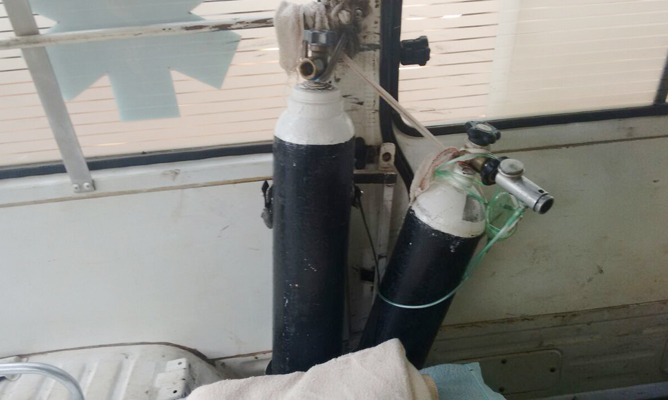
At 40 weeks, almost getting into post term of my pregnancy, I was beginning to feel piercing jabs in my lower back — known as contractions — only during the night.
BY JACKIE MBAYIWA-MAKUVATSINE
Day time I was fine and dandy.
Days after the sleepless nights, I decided to visit my clinic so the midwives could check if all was well with me and the baby. Feeling fine, I used public transport and despite the swerves and speed associated with kombis, I arrived at the clinic without feeling the dreaded pangs of labour onset.
After waiting for what seemed like eternity, my name was finally called out by a nurse who led me to the pre-natal exam room.
It was at this time that my contractions seemed to have picked up and I felt the pangs more frequently.
Despite this, the midwife said there were no signs that my cervix was dilating, or opening up to prepare for childbirth.
But when she listened to my baby’s heartbeat, I saw a frown on her face and wondered what was wrong.
- Chamisa under fire over US$120K donation
- Mavhunga puts DeMbare into Chibuku quarterfinals
- Pension funds bet on Cabora Bassa oilfields
- Councils defy govt fire tender directive
Keep Reading
My baby’s heartbeat was irregular, a sign that it was suffering from “foetal distress”, according to the nurse. That called for urgent attention by medical doctors.

“Did you come on a private car” asked the midwife. “No, I came by public transport,” I responded, my heart racing.
She looked even more worried before she disappeared for some time, leaving me in extraordinary confusion and worry.
When she returned she told me I was to be immediately transferred to Mbuya Nehanda Maternity Hospital to have doctors attend to me right away as my baby was in danger.
“The other nurse I consulted says we can’t send you there by yourself as you have to be urgently attended to. You therefore need to go by ambulance so that you will get swift attention,” she told me.
She added that they had called the City of Harare public health department to request for an ambulance, but there was no free vehicle at that moment.
“As soon as there is one, they’ll send it through,” she assured me.
Meanwhile, another woman who was in labour came in and delivered within a few minutes while I watched.
Because of my phobia for the siren and lights of an ambulance, I continued to pray that my baby would also come out right away.
I just did not want to experience the agony that being in an ambulance brings to my mind.
After what could have been the longest and most distressing two hours of my life, the ambulance finally arrived.
As I got inside, my fear seemed to drive me to pay attention to the details of its interior, just to make sure it was safe and sound and had all the equipment necessary to get me to Parirenyatwa hospital in one piece.
The oxygen cylinders, a vital component of any such vehicle, were in this case, tied together with a bandage, something that left me wondering if at all they were functional.
Instead of seeing this ambulance as a vehicle of hope for recovery, it appeared to be nothing but just a death trap and a sure sign of how bad our health delivery system has deteriorated.
As the vehicle moved, the improperly secured cylinders were rubbing against each other, producing clanky sounds that unnerved me.
To make a bad situation worse, the vehicle appeared to struggle to move and as it made its way down the road, its engine sounded like an old tired song playing from a broken record, a sure sign it was nothing but just a ramshackle mass of metal and rubber that was no longer fit for such emergencies that require efficient vehicles with functioning vital equipment like sirens and first aid equipment.
Outside, I felt like I was in an old relic being transported to hell and realised the journey to hell for many expecting mothers usually starts in these horror houses that they still call ambulances.

Despite the fear, inside my inner soul, I hinged everything on my faith in God and inside, I was at peace, believing my baby was going to be fine.
But that was because I was hoping my destination, the maternity home, was some kind of a heaven on earth. When I arrived, instead of seeing heaven, I witnessed decay and neglect.
Despite the pain inside me, I gathered enough courage to take pictures so that others could see the conditions mothers go through when giving birth at our public institutions.
Filth and rust are all over the toilets, which are frequented by anyone who is in pain. Those who nauseate easily must have a very bad time when they visit these toilets.
No wonder those who can afford rush to give birth at very expensive hospitals do so. But they are only a few as the majority of Zimbabweans suffer the consequences of economic neglect by government.
As they say, every dark cloud has a silver lining. the brighter side of it all was that the doctors and nursing staff were more than warm and friendly and despite the trying times they are going through, were spirited throughout and out of their efforts, I delivered a bouncing baby boy.











